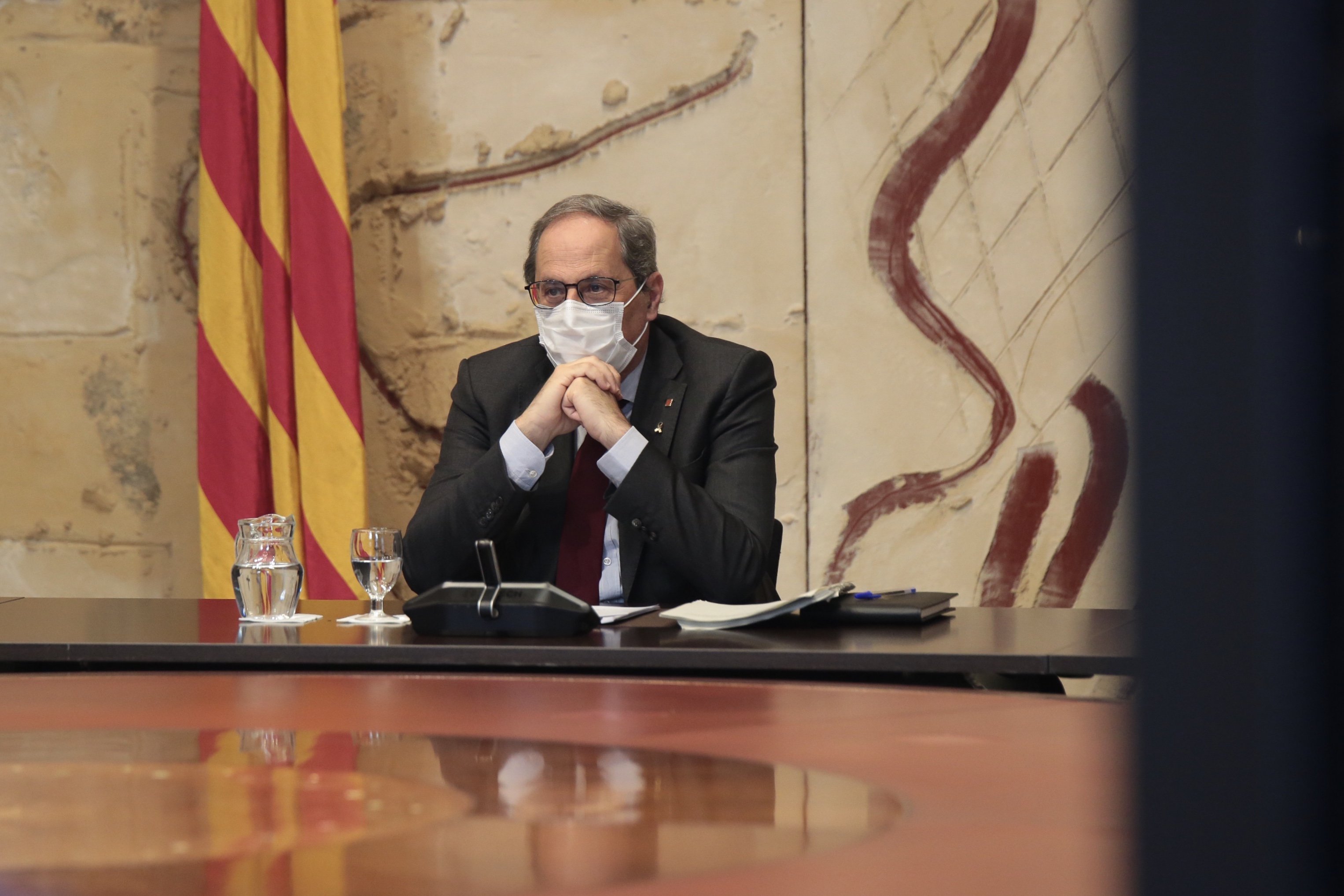No surprises, but no unanimity either. The plenary session of the Spanish Constitutional Court today rejected the appeal for constitutional protection lodged by the then-president of Catalonia, Quim Torra, against the ruling of the High Court of Catalonia (TJSC), later ratified by the Supreme Court, which found him guilty of an offence of disobedience and banned him from holding public office for a year and a half, in September 2020. However, two judges, Juan Antonio Xiol and Ramón Sáez, gave dissenting votes, and although the details of these have not yet been released, their resolutions tend to favour safeguarding of rights. The conviction forced Torra to leave the Catalan presidency.
The events for which he was convicted took place in March 2019, and consisted of Torra's refusal to comply with the "repeated" demands made to him by the Central Electoral Commission (JEC) in his capacity as president of the Generalitat of Catalonia, for the removal of a banner calling for the release of political prisoners and exiles, which was displayed on the balcony of the Palau de la Generalitat in central Barcelona, considered by the JEC to be a symbol identifiable with certain political options and thus violating the principle of neutrality imposed on all public authorities, and in particular, enforceable in the run-up to an election.
In a press release by the court, it is stated that the judgment (not yet provided), with Antonio Narváez Rodríguez as the reporting judge who drafted it, gives a detailed analysis of the different allegations by the appellant, and rules out any breach of several rights - the right to an impartial judge, to be tried in the court predetermined by law, to a defence and to the presumption of innocence, as well as the right to equality. It also dismisses the presentation of preliminary questions before the European Court of Justice, which had been requested by Torra, on the understanding that "the supposed origin does not affect the resolution of the appeal for constitutional protection".
It is affirmed that the argument on the alleged breach of Torra's right to legality in criminal proceedings is particularly extensive, but it is also rejected. According to the court, "the appellant's conduct could not be protected on the grounds of the exercise of subjective rights, because in his capacity as president of the Generalitat de Catalunya, and person with final responsibility for the management of public buildings, his conduct was determined by the provisions in the legal system".
The judgment states that "the appellant was not convicted for his ideas, opinions or statements, but for failure to comply with requirements arising from the improper use of public buildings, which must be in the service of the general interest, not that of a more or less specific or large group of people, to the exclusion of the rest." It added: "The display of partisan symbols, to the extent that they are identifiable with certain political options, violated the duty of neutrality and objectivity which, at all times, must be respected by the public authorities, but especially during electoral period, as guarantee of the uncontaminated nature of the democratic process, and of equality in the elections".
Former president Torra will be tried again this year on March 17th for failing to remove the banner in favour of the political prisoners, this time when ordered to do so by the Catalan High Court, when it was not an election period. Torra, who has already served his first sentence, will be tried in a Barcelona criminal court.
The political prisoners referred to in the banner - the Catalan pro-independence leaders who were later convicted to long jail sentences for sedition - have since been pardoned by decision of the Spanish government.

